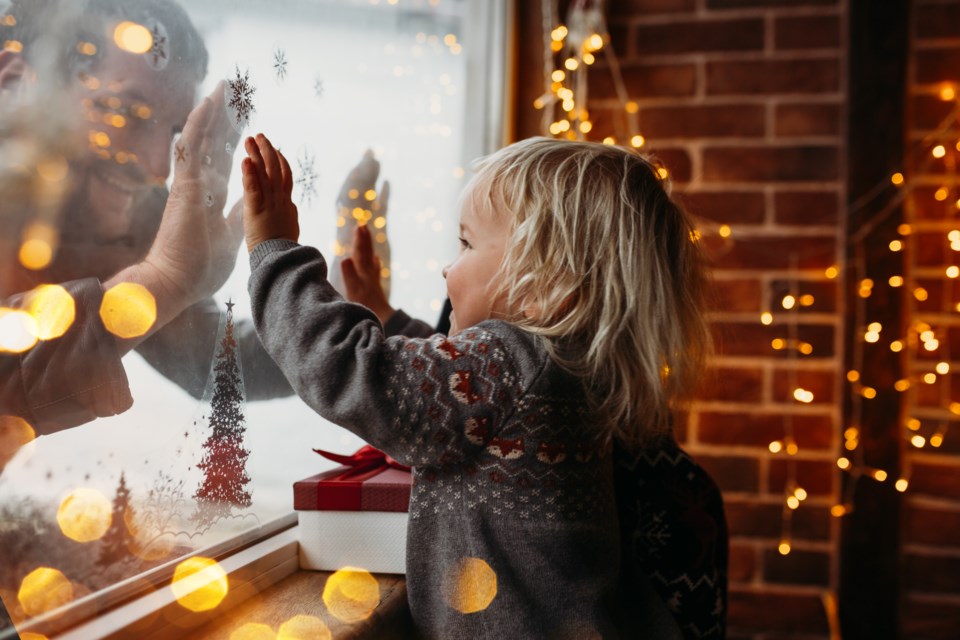Dear Lisi: When Halloween was coming up I was in a full state of anxiety. I know that by the time you see this the situation will have resolved itself, but I’d love to know your thoughts anyway.
My husband and I are separated, and it’s been ugly and complicated. We don’t see eye to eye on most topics, and parenting is one of the biggest areas of conflict. Mondays are his night, and this year, Halloween falls on a Monday.
When we were married, we all decorated the house, but he only did the things we couldn’t reach or carry. On the night of, the kids and I would get dressed up and walk the streets while he manned the house. His choice, as he didn’t want to talk to other parents or get dressed up. Basically, he couldn’t care less about Halloween.
I’ve helped the kids choose their costumes, and we’ve decorated our house. They’ve helped me choose my costume and organize the candy. I’m devastated that I’m not going to be with them. I’m worried their father is going to drop the ball and ruin one of their favourite nights of the year.
How do I get through this without bursting into tears?
Hollow Halloween
I’m glad you reached out because this situation can and will apply to other holidays throughout the year, if not for you, then for other readers. The best thing parents can do for their children during and after a divorce is to compromise and not stand rigid in certain areas.
For example, if Father’s Day falls on one of your weekends, ask him if he would like his kids on that day, or for part of that day. Same with his birthday. And I would give him the same advice regarding your birthday and Mother’s Day.
He knows how much you love Halloween. If he doesn’t offer himself, perhaps ask him if the kids could go trick or treating on your street, so you could join them for a bit.
You’re going to have to learn how to work these things out, especially when it comes to the larger holidays such as Christmas, Kwanzaa, Easter or Passover. Hopefully, you can put your differences aside for the sake of the children.
But remember, you can’t control his reactions or his behaviour. And if he chooses to hold this against you and not share the children with you on this night, know that you did your part by helping them with their costumes and decorating your house together.
FEEDBACK regarding the gay preteen and his unsupportive grandparents (Oct. 17):
“Being gay is NOT akin to shaving your head or dyeing your hair blue or piercing your eyebrows; it is not transient or a passing fad.
“I have watched friends with grandchildren struggle — for cultural and/or religious reasons — in accepting queer children/grandchildren. In my experience, children know who love, accept and support them and distance themselves from those who don’t.
“If these grandparents want a relationship with their grandson, they need to do the work — it is not the child’s responsibility to educate or excuse them. Nor is it their son’s. Refer the grandparents to available resources such as PFLAG or their local queer community centre such as 519 in Toronto. The onus is on them to do the work.
“Their grandson did not “choose” who he is; however, these grandparents can choose to educate themselves and find love in their hearts. Otherwise, they are a toxic presence in their grandchild’s life.”
Lisi – Thank you for this feedback. I understand completely that being gay is not a choice and therefore not at all the same as one’s hair length or colour.
FEEDBACK regarding the mother afraid of the new puppy (Oct.18):
“Classical conditioning is powerful. Remember the experiment of the salivating dog in the presence of meat with the ringing of a bell who salivates to a bell alone?
“I believe this mother experienced fear in the presence of a dog at a time she no longer remembers. She might have been bitten, jumped up on or just felt afraid.
“I have a friend who is frightened of feathers. Neither she nor her late mother could recall an instance that led to this fear. However, it is real, and I have to put my feather pillows away when she visits.
“This mother needs to try to overcome this fear by gradually taking steps to reduce the fear response in the presence of the puppy, for example, taking deep breaths, thinking of something pleasant, etc. If this doesn’t work, she might need a therapist.”
Ellie Tesher and Lisi Tesher are advice columnists for the Star and based in Toronto. Send your relationship questions via email: [email protected].




